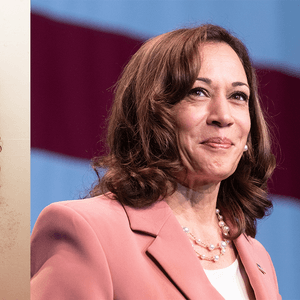Amy Price says
she and her partner, Kathy Hopkins, struggled to afford
the $600 to $700 monthly cost of Hopkins's hepatitis C
medication when Hopkins was covered by her private
employer's health plan. "It was going to break us,"
Price said. "It was just an astronomical amount."
If there's ever another need for that kind of
treatment, the cost will be much less now that Hopkins
receives domestic-partner health care benefits through
Price's job as a radio installer for the city of Phoenix.
But whether Phoenix and other local governments in
Arizona would be able to continue to provide benefits
to couples such as Price and Hopkins is an early focus
of debate concerning a proposed state constitutional
amendment to define marriage as a union between one man and
one woman.
Opponents of the Protect Marriage Amendment
proposed for Arizona's November 2006 ballot say
employees and partners would lose their partner
benefits under wording that prohibits the state and local
governments from granting marriage-like "legal status"
to unmarried people.
Arizona
governments providing medical benefits to domestic partners
include Pima County, Pima Community College, the Sunnyside
and Tucson unified school districts, and the cities of
Phoenix, Scottsdale, Tempe and Tucson.
Initiative
supporters say the domestic-partner issue is a smoke screen
and that the proposed 58-word measure is solely intended to
protect marriage. They say the "legal status" language
is meant to keep activist judges from legalizing civil
unions. "What we can say at this point is that the
amendment is to identify and define marriage as
between one man and one woman," said Nathan Sproul, a
consultant for the initiative campaign. "That is all
that this is trying to accomplish."
While some
Protect Marriage Arizona supporters previously said domestic
partner benefits provided by governments would be
prohibited, Sproul declined to explicitly state during
an interview whether the amendment would affect those
benefits. "Ultimately that's going to have to be up to
the judicial system to figure out what the implications of
the definition are," said Sproul, a Republican
political operative only recently hired by the
initiative campaign.
However, United Families Arizona, a group
belonging to the pro-amendment coalition, flatly said
government-provided benefits for domestic partners
would not be affected because they stem from employment, not
marriage. Arizona Together, a coalition opposing the
initiative, is focusing much of its early efforts on
the domestic-partner benefits issue.
Accordingly,
coalition members welcomed a recent Arizona State University
poll that found strong opposition among registered Arizona
voters toward the initiative and a ban on
domestic-partner benefits offered by state and local
governments. A big majority said they would oppose an
amendment that would ban both same-sex marriages and
domestic-partner benefits for unmarried government
employees. A large number also said they would oppose
a ban on just domestic-partners benefits.
"That's the part that people don't like because
people don't want to hurt people and take away their
existing benefits," said state
representative Kyrsten Sinema, a Phoenix Democrat and
chairwoman of Arizona Together. "I think I give a
speech about this every single day."
Sproul and Len
Munsil, a leading supporter of the proposed amendment,
each said the poll's findings are dubious, especially
since they show a majority of those surveyed were
against a ban on same-sex marriage without any
reference to domestic-partner benefits. "It has marriage
losing," said Munsil, president of the Center for Arizona
Policy, a Scottsdale-based advocacy group. "That tells
me all I need to know."
The ASU poll results seem credible in light of
Arizona's 2001 repeal of so-called archaic sex laws
that banned cohabitation and sodomy, said Thomas
Coleman, executive director of Unmarried America, a
Glendale, Calif.-based nonprofit. "The
direction that things are going in Arizona (is)
getting a little more respectful of unmarried people,"
Coleman said.
However, Damien McNeal, a Pima County employee
whose job provides benefits for his partner, Richard
McLean, said it's frightening that McLean's coverage
could be in jeopardy. It would be financially
devastating for the couple of 23 years because McLean, a
floral designer, has a chronic medical condition that
requires costly medication and that put him in the
hospital last summer, McNeal said. "We're contributing
members of society, and we don't want to ask for anything
more than what our counterparts receive freely,"
McNeal said.
Price said she and Hopkins "are luckier than a
lot because she (Hopkins) can go back on her insurance
policy from her work and hope she doesn't get sick."
"If she does get sick, then we probably can't afford
that," she added. (AP)


















































































